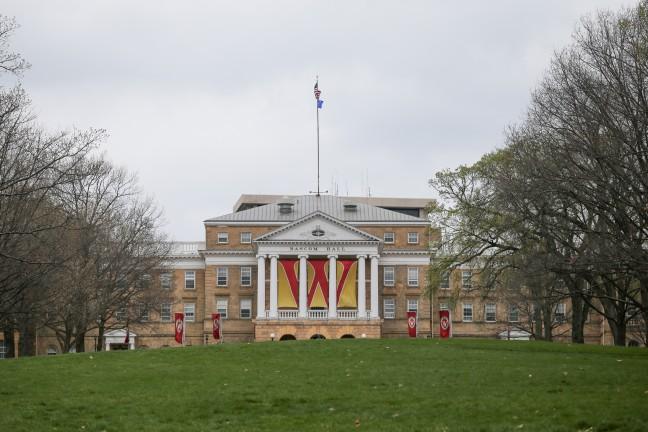As students at the University of Wisconsin continue to express their concerns with Gov. Walker’s proposal to let students opt out of allocable segregated fees, the state Legislature’s joint finance committee met Thursday to address the contentious idea, among other items, in the state budget.
UW System President Ray Cross said the 2017-19 budget is “one of the best” the system has seen in a decade.
The proposal features $42.5 million of new funding for the UW System tied to performance standards including improving college affordability and enhancing work readiness.
But some legislators questioned some of the proposal’s caveats, including a provision that would let students opt out of segregated fees, which student governments allocate to pay for services, including UW’s bus pass program and University Health Services.
State Sen. Lena Taylor, D-Milwaukee, said she immediately knew the opt-out proposal was a “bad idea.”
If this proposal were to pass and students then opt out of paying the fees, Taylor said there may not be enough funding for infrastructure for programs and projects.
Student groups unite in effort to oppose contentious budget proposal
In addition, veterans — who currently have the option to opt out of fees — may be required to pay directly themselves if the provision passes.
Taylor, who opposes the governor’s proposal, said segregated fees also give students the opportunity to learn about budgeting.
On the other hand, Cross said while he believes in student government, he doesn’t think it should be “out of control” and able to distribute millions of dollars. State Rep. Amy Loudenbeck, R-Clinton, echoed a similar sentiment.
“What I’ve heard so far from students is this [proposal] is punitive from the Legislature, when in reality, we’re trying to protect their hard earned money,” Loudenbeck said.
Along with the proposal, the issue of free speech has been a topic of discussion on campuses not only in the UW System, but nationwide. In the governor’s current budget, he proposed allocating $10,000 in 2017-19 for the system “to review and revise policies related to academic freedom.”
Cross noted the governor’s proposal is almost identical to the system’s current policy and would simply codify it into statutory language. But Cross said he thinks the policy has merit, since a healthy university atmosphere has voices from a variety of viewpoints.
“As offensive as they may be, as immature as they may be, as irresponsible as they may be, that’s what a university is all about,” Cross said. “If you can’t do that on a university campus, how will you be able to do it in society.”
In addition to changes in academic freedom policy, the committee discussed the possibility of implementing performance-based funding. Assistant Minority Leader Rep. Katrina Shankland, D-Stevens Point, expressed concern about the full $42.5 million being based on performance.
Cross also said they should remain “cautious” with performance-based funding. He believes the state should set specific “categories” while the system decides specific criteria to measure.
Another measure Cross held caution with was the proposed requirement for all UW System students needing to participate in an internship to graduate. Assistant Majority Leader Sen. Leah Vukmir, R-Brookfield, said she’s also concerned about making that a requirement.
Impacts of Walker’s UW performance funding plan remain unclear
While Cross said he likes the idea, it is “difficult” to accomplish.
“I’m a strong supporter of [internships] … I don’t want to weasel out of the idea … but I agree with [Vukmir] in terms of [making it] mandatory,” Cross said.
The Joint Finance Committee will reconvene in coming weeks to continue to discuss and make changes to Walker’s budget proposal.




















